Introduction
By combining Power Automate with Azure Key Vault, you can ensure that your workflows and automated processes are both efficient and highly secure, with sensitive information stored and managed in a dedicated, protected environment. When you combine Power Automate with Azure Key Vault, you can enhance the security and automation capabilities of your workflows. Here’s how they can work together:
- Secure Storage of Secrets: Azure Key Vault can securely store sensitive information like API keys, connection strings, and passwords. Instead of embedding these secrets directly in your Power Automate flows, you can store them in Azure Key Vault.
- Secret Retrieval: Power Automate can be configured to retrieve secrets from Azure Key Vault when needed during the execution of a workflow. This helps in keeping your secrets separate from your workflow logic, enhancing security.
- Authentication: When you use Power Automate to interact with various services and APIs, you often need credentials for authentication. Azure Key Vault can store the necessary credentials securely, and Power Automate can retrieve them at runtime for authentication purposes.
- Key Rotation: Azure Key Vault allows you to perform key rotation, which is essential for maintaining the security of cryptographic keys over time. Power Automate can automate the key rotation process by leveraging Azure Key Vault.
- Compliance and Auditing: Azure Key Vault provides auditing and logging capabilities, which can be crucial for compliance purposes. Power Automate can trigger alerts or actions based on auditing events in Key Vault.
- Dynamic Secrets: With Power Automate and Azure Key Vault, you can dynamically generate and manage secrets, such as temporary credentials, which can be useful for scenarios like provisioning resources on-demand.
- Integration: Power Automate integrates seamlessly with Azure services, including Azure Key Vault, making it easy to incorporate secure key and secret management into your automated workflows.
What is Azure Key Vault
Azure Key Vault is a service offered by Microsoft Azure that provides secure management of keys, secrets, certificates, and other sensitive information. There are several compelling reasons to use Azure Key Vault:
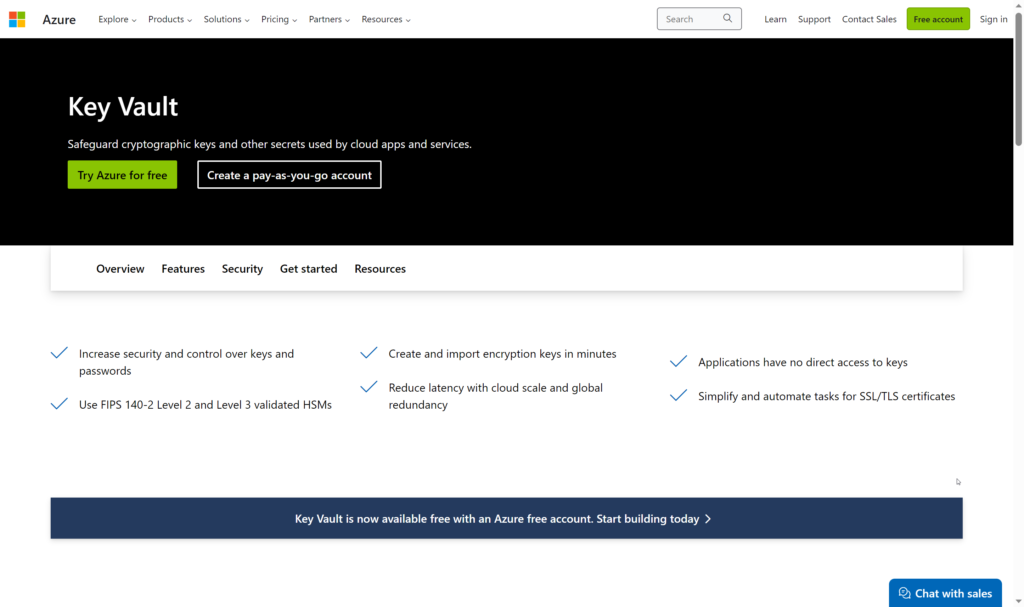
- Security: Azure Key Vault is designed to safeguard cryptographic keys and other secrets used by cloud applications and services. It employs industry-leading security practices, including hardware security modules (HSMs) for key protection.
- Centralized Management: Key Vault allows you to centralize the management of keys, secrets, and certificates in one place, making it easier to manage and secure sensitive information across your Azure services and applications.
- Access Control: You can define fine-grained access control policies to restrict who can access and manage the secrets stored in Key Vault. This ensures that only authorized users and applications can retrieve sensitive data.
- Integration with Azure Services: Key Vault seamlessly integrates with various Azure services, such as Azure Functions, Azure App Service, Azure Logic Apps, and more. This integration simplifies the process of securely accessing secrets and keys from within your applications.
- Secure Key Storage: Key Vault provides secure storage for cryptographic keys, including the ability to generate, import, and manage keys. It also supports the use of hardware security modules (HSMs) for additional protection.
- Secrets Management: Key Vault allows you to store and manage secrets, such as connection strings, API keys, and passwords, separately from your application code. This enhances security by reducing the risk of sensitive data exposure.
- Certificates Management: You can use Key Vault to manage digital certificates securely. This is particularly important for applications that require SSL/TLS certificates.
- Auditing and Logging: Key Vault offers auditing and logging capabilities, allowing you to monitor access to secrets and keys, track changes, and maintain compliance with regulatory requirements.
- Key Rotation: Key Vault supports automatic key rotation, making it easier to update cryptographic keys without disrupting your applications. This is crucial for maintaining security over time.
- Scalability and Availability: Azure Key Vault is a scalable and highly available service that can handle the demands of enterprise-level applications and services.
- Compliance and Certifications: Azure Key Vault complies with various industry standards and certifications, such as SOC 2, ISO 27001, HIPAA, and more, making it suitable for applications with strict compliance requirements.
Overall, Azure Key Vault provides a secure and convenient solution for managing keys and secrets in the cloud, helping you protect sensitive data and improve the security posture of your applications and services.
How do they work hand in hand
Step 1: Create a new Key Vault in Azure
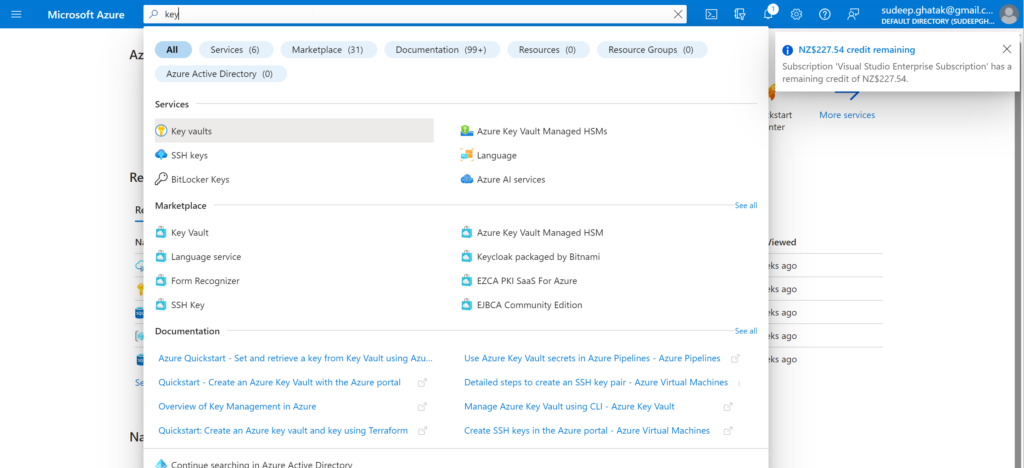
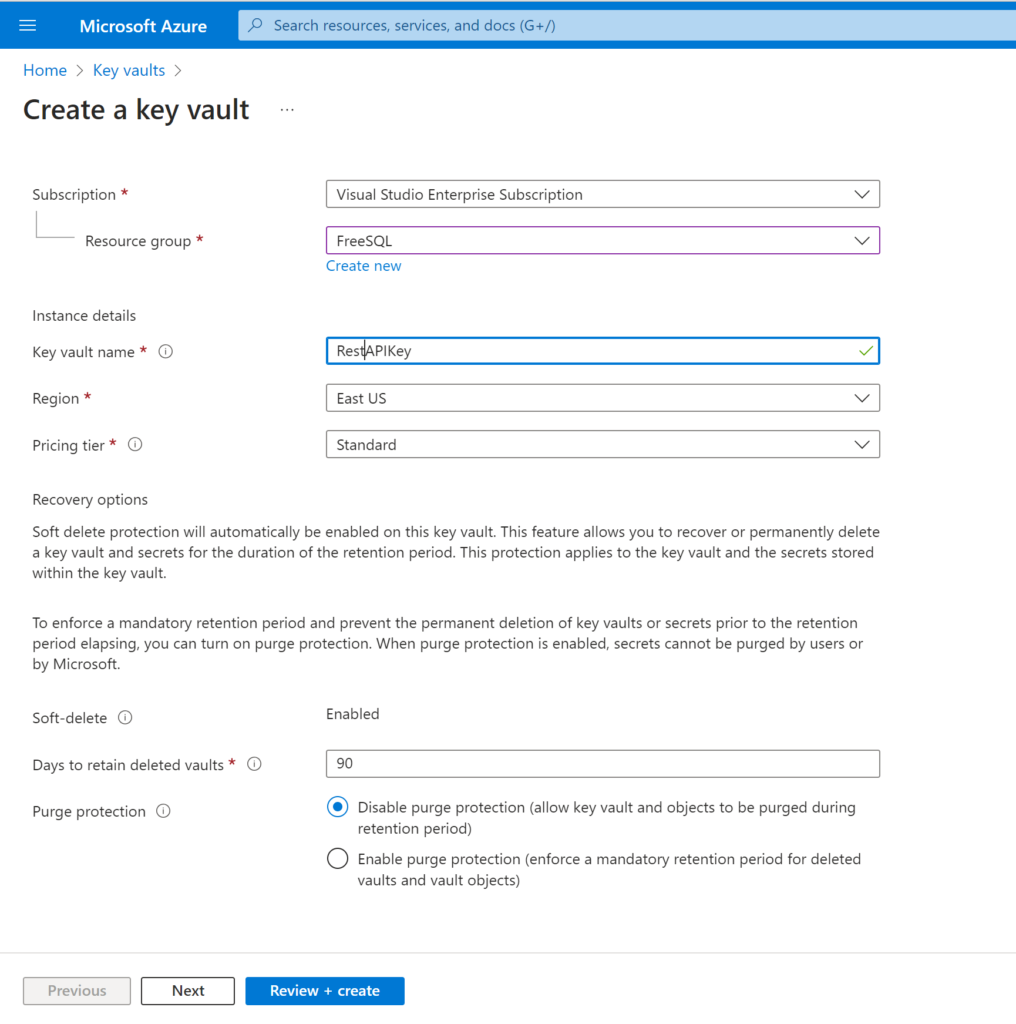
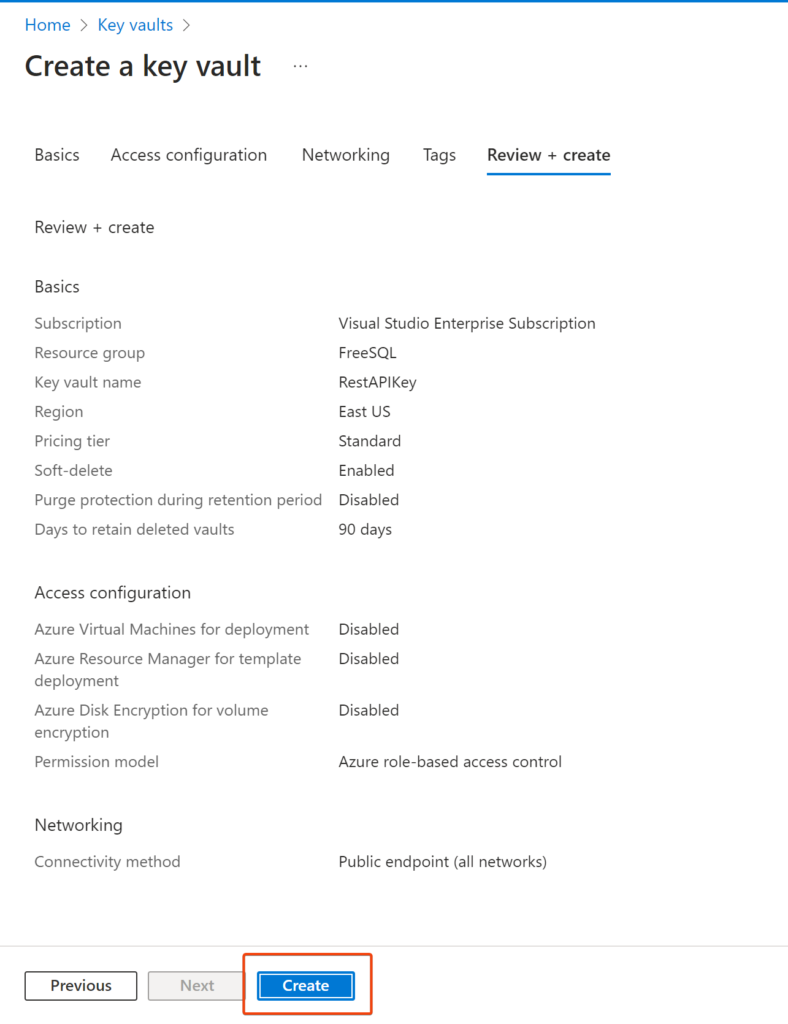
Step 2: Add a secret/password
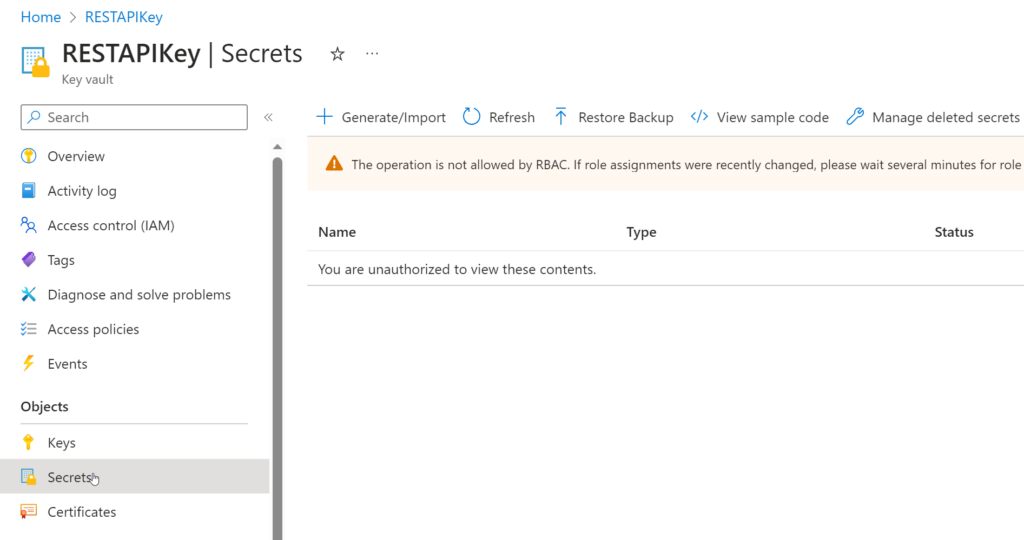
Generate a new secret
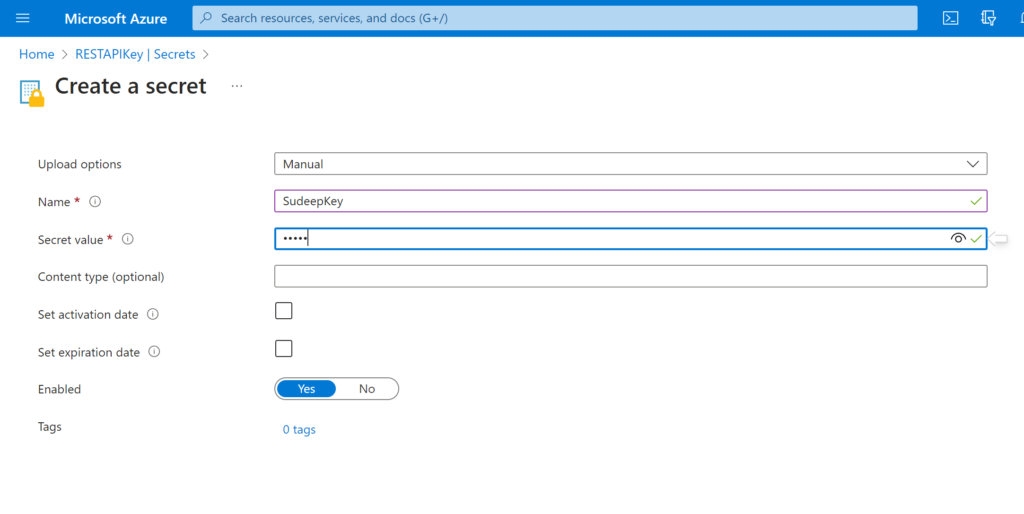
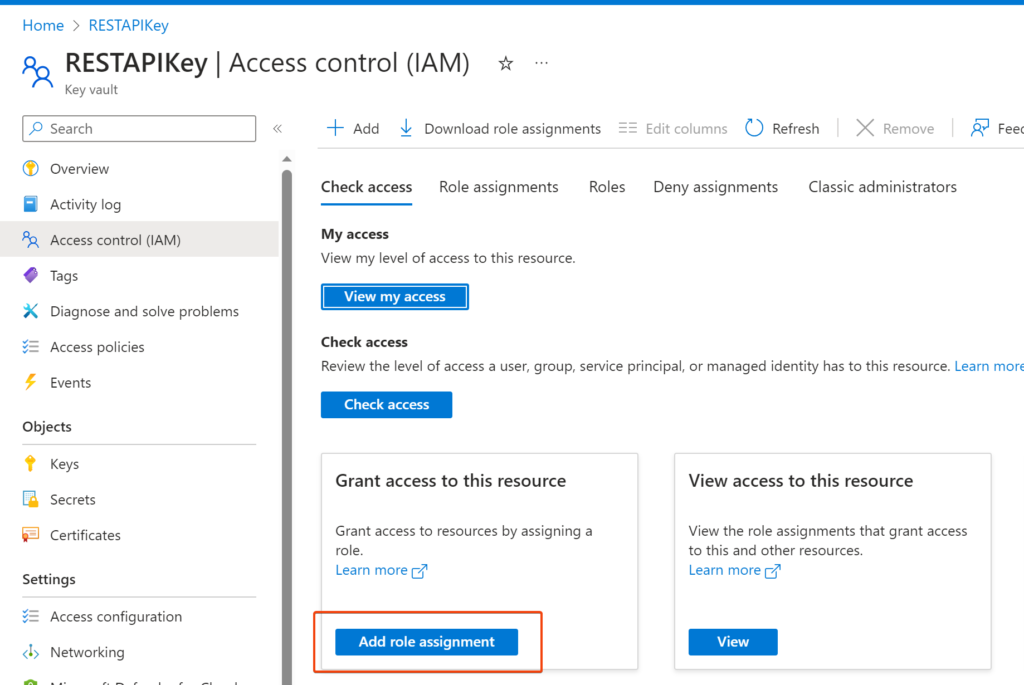
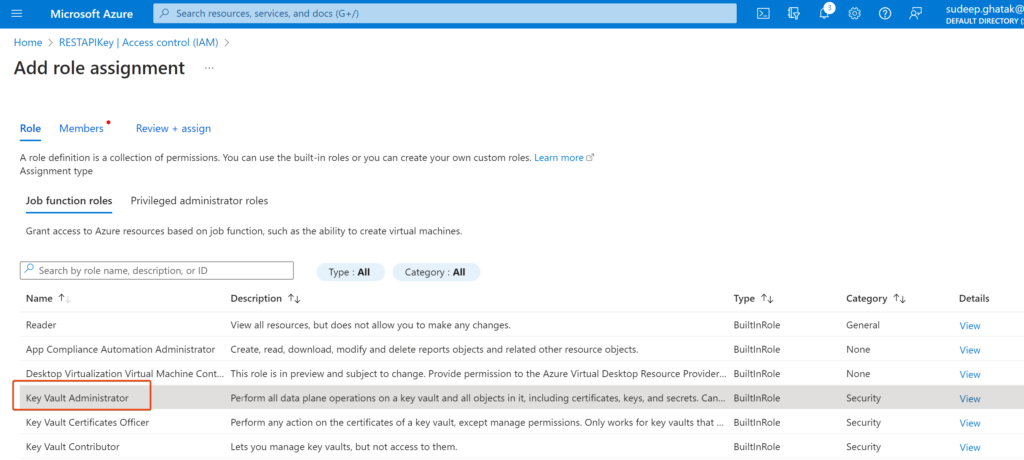
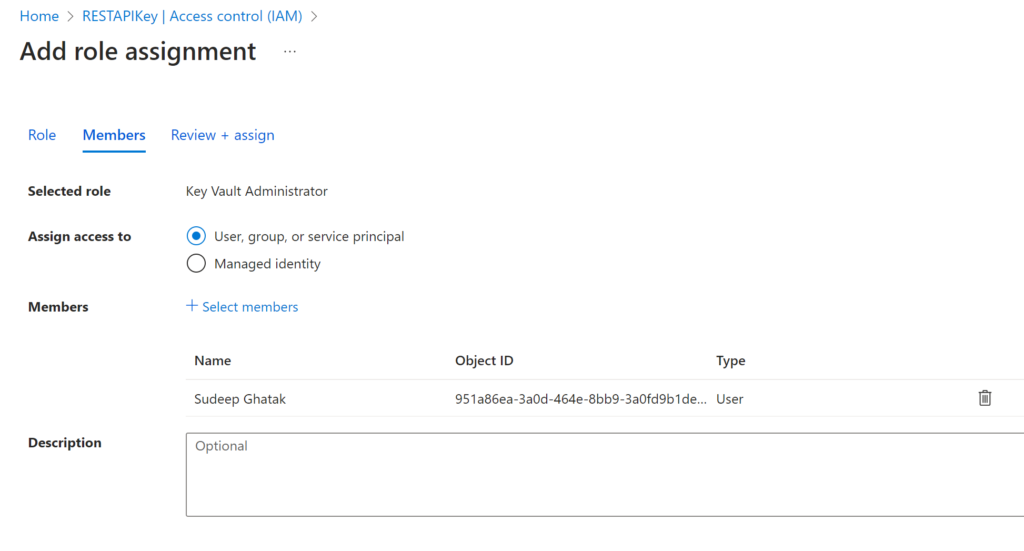
Step 3: Build the Power Automate

In order to make sure that the password is not visible in the flow history, make the following changes to the action


Flow history as shown below:

Referencing the Password

